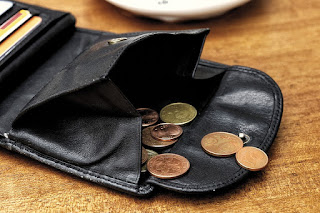Whether you’re a business owner or simply somebody who is attempting to build personal wealth, you might be wondering why you’re not taking papery baths in tubs full of the green stuff yet. There are a few reasons this could be, which we will discuss in this post. Perhaps your mindset isn’t in the right place, or you’re making some fatal mistake that you don’t realize just yet.
Read on if you want to know why you aren’t rich yet:
Your Mindset And Attitude Don’t Match Up
If you want to be rich, your attitude and mindset really need to match up with that. Would a rich person walk around talking about how rubbish their financial state is, and how badly they are struggling? No, they wouldn’t. This doesn’t mean you should ignore what’s really going on. It simply means you need to stop wallowing in it. Talking about it and really sinking into that depressing ‘broke’ feeling will only make things worse.
Change your attitude to that of a ‘can-do’ and you’ll get far more done, helping you to overcome the obstacles in your way to getting rich. There are all kinds of books that back this up, such as Think And Grow Rich by Napoleon Hill, and Rich Dad Poor Dad.
You’re Wasting Time
Perhaps you’re wasting time in some way. You know what you’re good at, so you should be doing that. If you’re wasting time struggling through your accounts, then hire somebody else to do it. Not only will you be able to spend more time doing what you’re good at, you’ll minimize mistakes first time round. Not to mention, mistakes can be seriously costly. If you don’t want to hire a person, there are even programs that can do these things for you, such as accounts receivable software. When you automate and outsource these processes, you will spend more money initially, but in the long run you’ll be doing yourself a huge favor.
You’re Wasting Money
Perhaps you’re wasting money. If you don’t have a budget, it’s almost certain you’re wasting money. If you're not working on where you can cut costs, you’re wasting money. Take a long hard look at where your money is going and figure out where you can cut back. The key to becoming rich is building wealth. You only build wealth by spending less and being sensible with your cash, not by spending as much as possible on fancy cars and gadgets. You may look rich to others this way, but you’ll be spending a whole lot of money on something that doesn’t actually serve you any more than a regular car!
You’re Not Diversifying
One thing many wealthy people will tell you, is that you need to diversify. Make cash through different streams and you will eventually build wealth. If you can find ways to make cash while you sleep, that’s even better. What can you invest in? How can you make passive income? Attempt to diversify as much as possible!
Becoming rich takes time, but if you use these tips, you’ll get there!
















